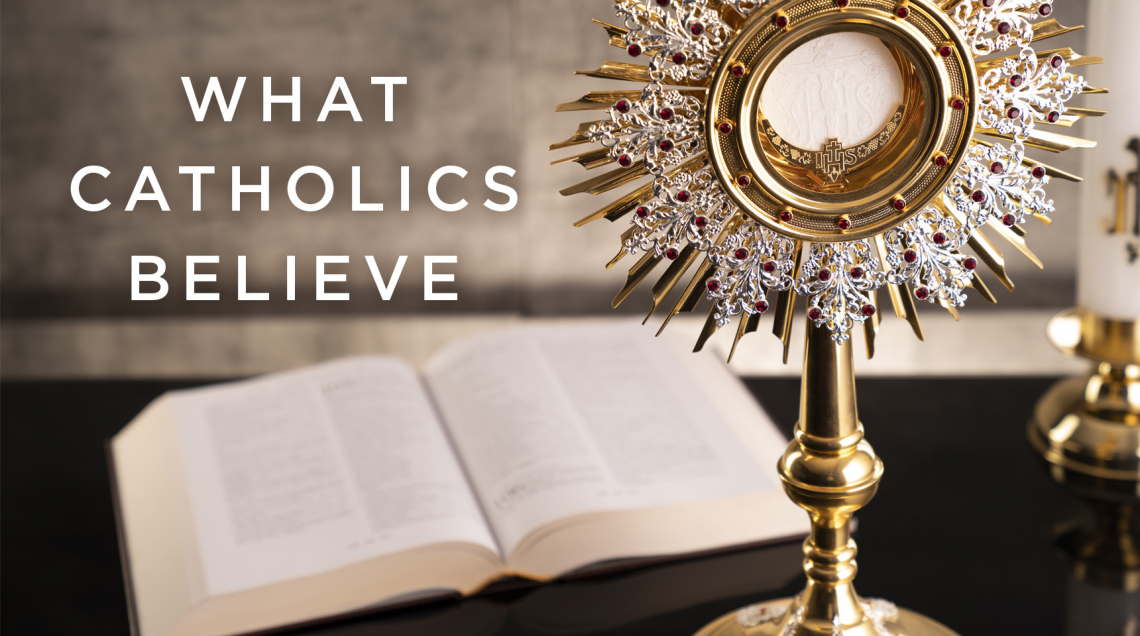The Mass: 'Hear the word of the Lord': Part II

In the period since the Second Vatican Council, we have all become accustomed to hearing a homily preached at nearly every Mass we attend, including weekday Masses. Historically over the centuries, however, the preaching of sermons most often did not take place during Mass. In the Middle Ages, long sermons on moral or doctrinal topics most often accompanied devotions apart from Mass. These devotions might be centered on the mysteries of the life of Christ or of the saints. Or preaching might take place during novenas of prayer to patron saints or during special times of the year like parish missions.
The Council of Trent (1545-1563) emphasized the importance of preaching sermons during Sunday Mass for the sake of instructing those present in the truths of the faith, but these catechetical sermons generally had little to do with the Scripture readings that were proclaimed on any given day. Moreover, sermons at Mass were considered an interruption to the celebration of Mass itself. That’s why the preacher made the sign of the cross at the beginning and at the end of the sermon in order to indicate that Mass was being suspended in order to begin preaching, and then Mass was resuming once the sermon was over. Finally, preaching was very rare indeed, if nonexistent, at weekday Masses, including funerals.
In the 20th century, the study of the sermons of the ancient Fathers of the Church like St. Augustine (354-430 A.D.), St. Leo the Great (c. 400-461 A.D.), and St. Gregory the Great (540-604 A.D.), among others, rekindled interest in the liturgical homily and its place during Mass. The liturgical homily, as opposed to the moral or doctrinal sermon, is meant to be an extension of the Scripture readings proclaimed during Mass and an integral part of the liturgy of the word. The homily, as opposed to a sermon, is meant to be “an explanation of some aspect of the readings from sacred Scripture or of another text from the Ordinary or the Proper of the Mass of the day and should take into account both the mystery being celebrated and the particular needs of the listeners.” (General Instruction of the Roman Missal (GIRM 65). While the homily is generally focused on themes drawn from the Scripture readings proclaimed at a given Mass, it might also, on some occasions, be inspired by the unchanging parts of the Mass, like the Creed or the Holy, Holy, or the Gloria, as well as the mystery in the life of Christ or a given saint who is being commemorated. The homilist decides which approach to take based on the needs of the listeners, not some abstract syllabus of topics chosen without any consideration given to the lives of the faithful who will hear the homily. The homily is a part of Mass on Sundays and holy days of obligation (GIRM 66). It is recommended on the weekdays of Advent, Lent, and Easter, as well as on feasts and special occasions (GIRM 67).
If you ask most people why they come to Mass, they will answer that they come to hear the homily and to receive Communion. While praiseworthy in themselves, those two reasons do not fully express why Mass is celebrated by Catholics. For example, one can listen to a homily on Sunday on the television, and many people do just that. Or again, we don’t need a priest to receive Communion, even if we need a priest to consecrate the elements we receive in holy Communion.
The priest and people gather for Mass, rather, in order to offer together to God the Father the sacrifice of Jesus that He initiated at the Last Supper and that He fulfilled on the cross on Good Friday. That same sacrifice, not a different one or a new one, is offered by the priest and people whenever Mass is celebrated, whether there is a homily or not, whether people receive Communion or not. The purpose of Mass is for the Christian faithful, priests and people together, to join Jesus in His supreme act of worship to God the Father. We do so only through the power of the Holy Spirit, which makes us partakers in the life, death, and resurrection of Jesus at every Mass. As important as the liturgical homily is to growing in the Christian life, and as important as the worthy reception of holy Communion is to participate fully in the Mass and to being transformed by that participation, our sharing in the sacrifice of the Mass is the principal reason why we come to Mass on the Lord’s day or on any other day for that matter. We are participants in the action of offering the sacrifice of Christ’s life to the Father during the actions, responses, acclamations, and silent prayer of the Liturgy of the Eucharist, the second part of Mass, beginning with the preparation of the gifts and concluding with the reception of holy Communion. The liturgical homily, as important as it is, always takes second place to the primary purpose for our presence and participation at Mass.
Msgr. Marc Caron
Vicar General and Moderator of the Curia for the Diocese of Portland










